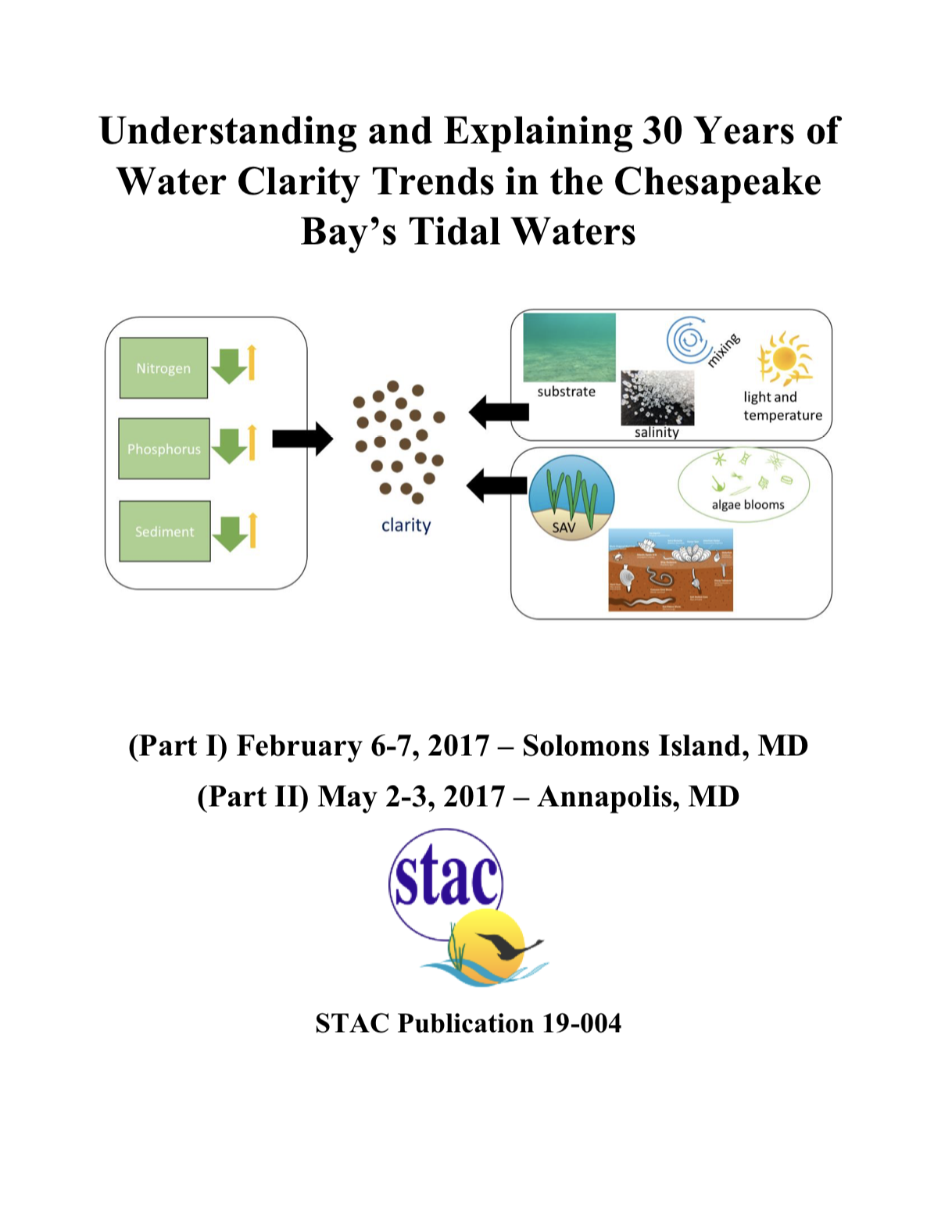Water clarity is widely recognized as an important indicator of the health and trophic state of aquatic ecosystems and is a key management target given the limit it imposes on the growth of submerged aquatic vegetation (SAV). A better understanding of the controls on water clarity variability may expand our understanding of SAV trends, while providing new insights into the interactions between eutrophication, sediment inputs, and the concentrations and composition of suspended solids. This workshop brought together experts from the multiple disciplines needed to synthesize the current state of the science on water clarity trends and the factors that affect them, and to identify priorities for future research. The group was also asked to address an explicit set of questions posed by the Chesapeake Bay Program in the original STAC workshop proposal. Those questions, along with the group’s responses and recommendations for future work, are summarized in this report.
Understanding and Explaining 30 Years of Water Clarity Trends in the Chesapeake Bay’s Tidal Waters

| Author: | Keisman, J., C. Friedrichs, R. Batiuk, J. Blomquist, J. Cornwell, C. Gallegos, S. Lyubchich, K. Moore, R. Murphy, R. Orth, L. Sanford, P. Tango, J. Testa, M. Trice, and Q. Zhang |
| Pages: | 25 |
| Publisher: | STAC |
| Title: | Understanding and Explaining 30 Years of Water Clarity Trends in the Chesapeake Bay's Tidal Waters |
| Type: | STAC Workshop Reports |
| Volume: | STAC 19-004 |
| Year: | 2019 |
